
Among businesspeople, there is an understanding that obtaining a second citizenship is not just an attractive investment with the opportunity to improve the quality of life and discover new opportunities, but also the most important strategic step in securing your future in an unstable world.
Environmental disasters, pandemics, civil unrest, the overthrow of governments and military conflicts always arise suddenly, changing the established way of life and putting many on the brink of survival. In such cases, there is no time to think and look for solutions when the borders are closing and the opportunities to get out of the crisis are fading before your eyes. People who are responsible not only for themselves and their families, but hold leadership positions in companies with a large number of employees, it is absolutely necessary to have a plan B ready.
Therefore, obtaining Dominica citizenship through real estate investment has become a priority for many wealthy people around the world. We will name 9 main reasons and explain in detail why investors choose Dominica:
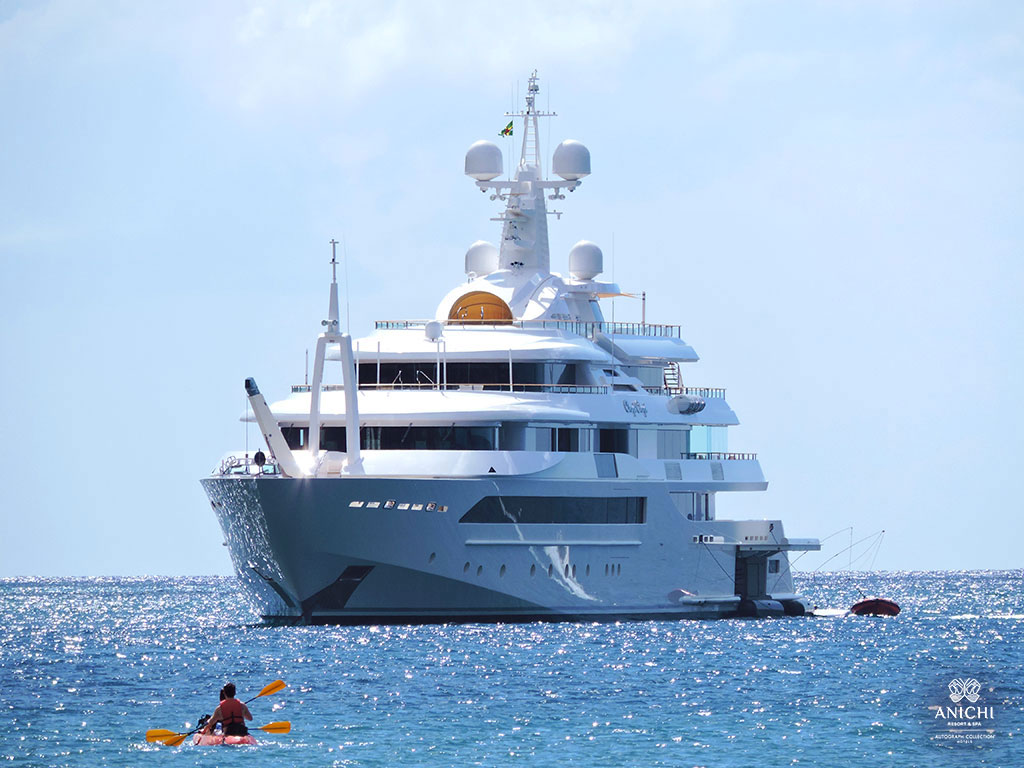
Chopi Chopi Yacht at the Prince Rupert Bay, Dominica
Dominica is recognized as the safest country to travel, live and do business in the Caribbean. It has one of the lowest crime rates in the Caribbean. The only thing that is recommended is not to forget about the usual common sense in your behaviour and the protection of property.
Women are traditionally treated with respect. They have equal rights with men and opportunities for career development. This is evidenced by the fact that more than 40 years ago, the first woman lawyer in her homeland and the first woman elected prime minister in the Caribbean region was Dame Eugenia Charles, a woman from Dominica. In 2022, the Cabinet of Ministers of the Government of Dominica was 40% female.
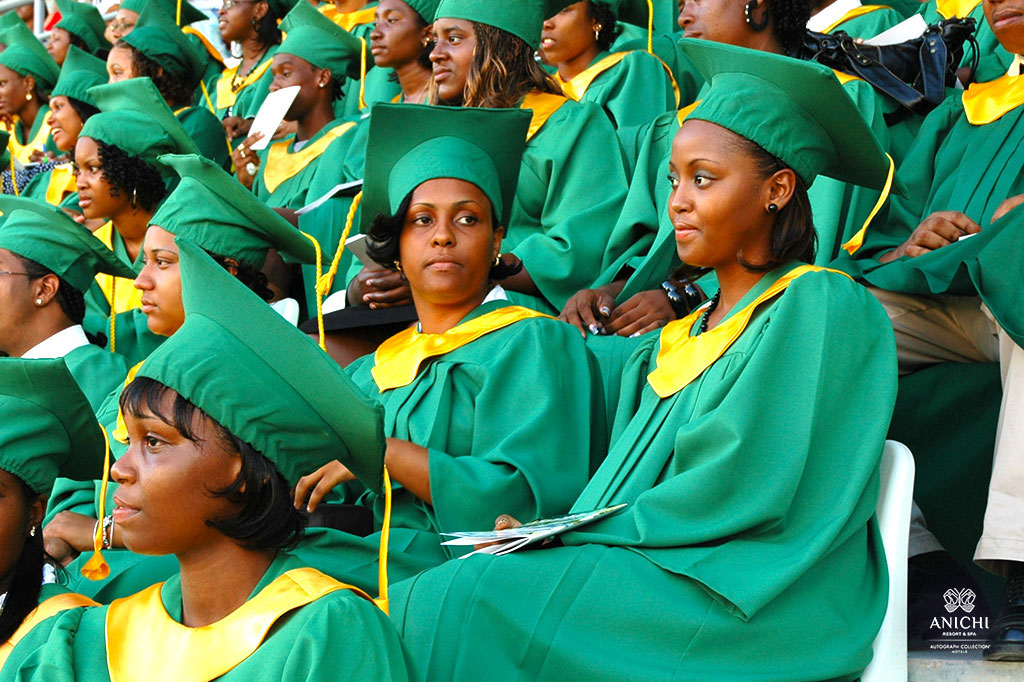
Dominica State College Graduates
Children have the opportunity to receive a quality education on the island. The literacy rate in the country is 97.8%. Primary school starts at 5 years old, secondary school from 12 to 16. There are three higher education institutions on the island: Dominica State College, an open campus of the University of the West Indies and All Saints University School of Medicine.
For the Government of Dominica, the development of education is a priority, and part of the funds received from the citizenship by investment programme is allocated to create brilliant prospects for young people: since 2017, 15 schools in Dominica have been restored and updated, $ 26 million has been allocated to sponsor the education of Dominicans in the best higher education institutions around the world (USA, Canada, UK, New Zealand, Austria, Japan, Russia, China, Turkey, Cuba and the Commonwealth countries).
Dominica has the best citizenship by investment country in fulfilling the human rights to education, based on the country’s income level, according to the Human Rights Measurement Ranking (HRMI):
| Country | Measurement in percent | Grade |
|---|---|---|
| Dominica | 89,6 | Fair |
| Grenada | 88,7 | Fair |
| Saint Lucia | 85,2 | Bad |
| Bulgaria | 75,6 | Bad |
| Austria | 74,2 | Very bad |
| Turkey | 73,9 | Very bad |
| Vanuatu | 73,5 | Very bad |
| Malta | 72,6 | Very bad |
| Cyprus | 68,4 | Very bad |
| Jordan | 63,7 | Very bad |
| Antigua and Barbuda | N/A | |
| Cambodia | ||
| Saint Kitts and Nevis | ||
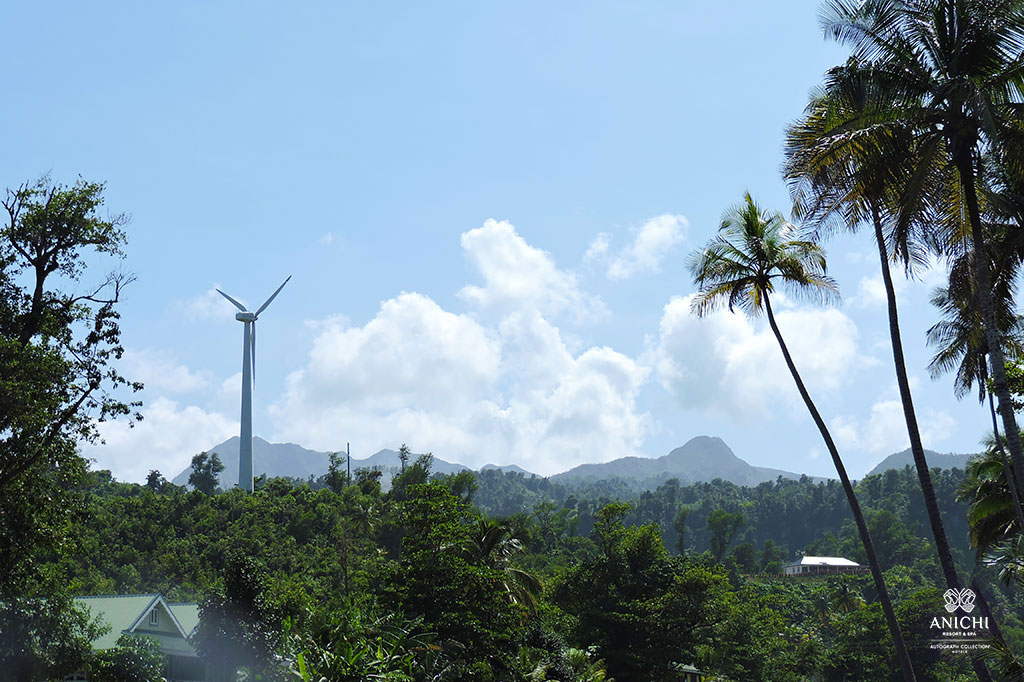
Rosalie, Dominica
Comfortable climate.
Dominica enjoys a pleasant maritime tropical climate with very little seasonal variation. The average annual temperature is +25-27 C. The northeast trade winds soften the heat. In the mountains, the climate is cooler than on the coast, but also more humid. The average annual rainfall ranges from 1800 mm (along the coast) to 5000 mm (inland), falling mainly in the form of tropical showers from June to October.
The splendour and richness of pristine nature.
The island is famous for its pristine nature. There are 3 marine and 2 forest reserves, 3 national parks, one of which Morne Trois Pitons was included in the UNESCO World Heritage List as the only one of its kind in the East Caribbean.
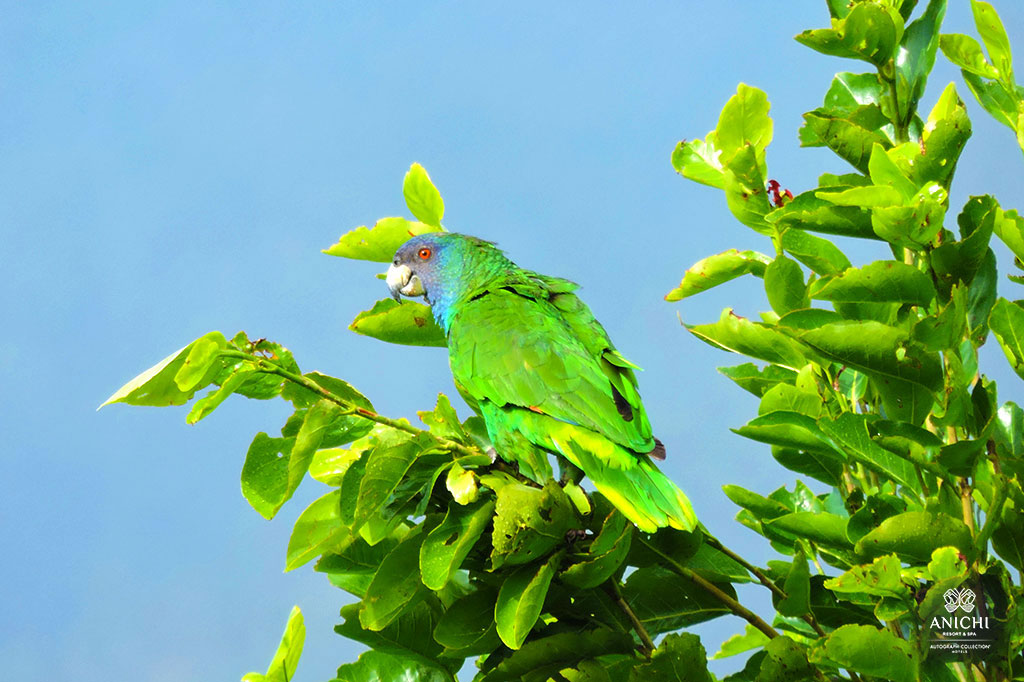
Red-necked Amazon or Jaco
The local flora and fauna are very diverse and includes numerous endangered species of animals and plants. Dominica is home to 197 bird species, including two endemic ones. One of them is the imperial amazon parrot, known as the Sisserou, which is the national bird and is present on the coat of arms, flag and other state symbols of the country. The second is the red-necked amazon or Jaco, which also lives only in Dominica.
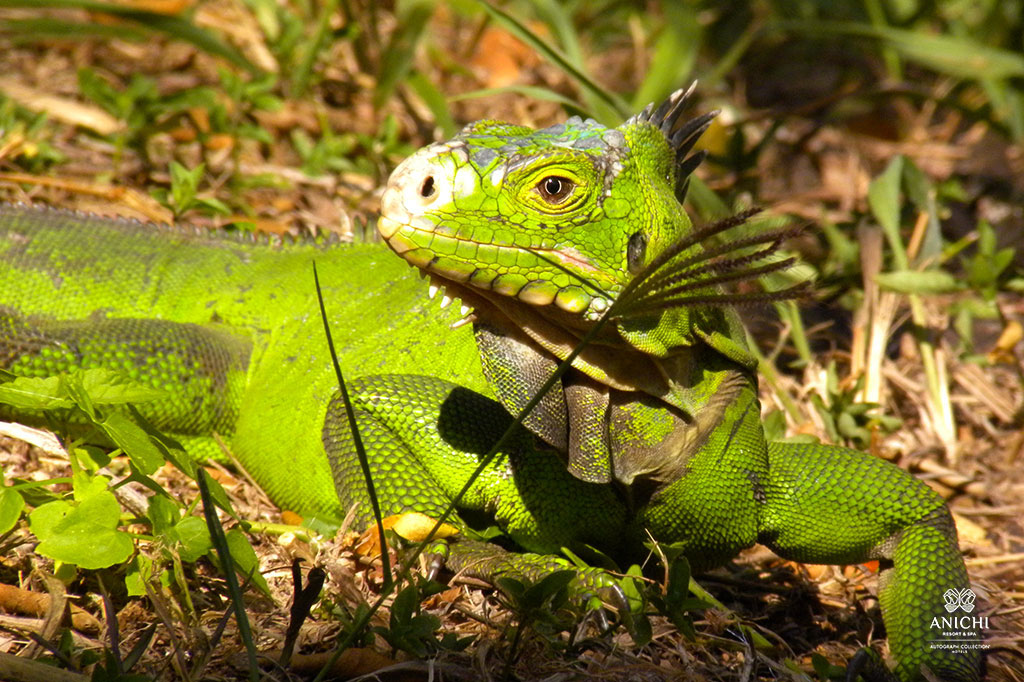
Lesser Antillean Iguana in Dominica
Dominica is one of the rare islands in the Lesser Antilles, where the original fauna of amphibians and reptiles has been preserved over the past 200 years. It became the last home for the Antillean whistler (scientific name Leptodactylus Fallax), one of the largest frogs in the world, which grows up to 56 centimeters and has received the informal name “mountain chicken” from the locals for the taste of its meat. Until 2003, the animal was used in Caribbean cuisine and was the island’s favourite national dish but is now heavily protected following an outbreak of chytridiomycosis, an amphibian infectious disease that has affected about 30% of all amphibian species in the world.
Among the 11 different species of lizards, two are endemic to Dominica: the small, pied lizard – zandoli (lat. Anolis oculatus) and the dark blue-emerald Dominican ameiva (lat. Pholidoscelis fuscatus). The Lesser Antillean iguana, one of the largest and most impressive iguanas in the country, has become endemic to the Lesser Antilles region.
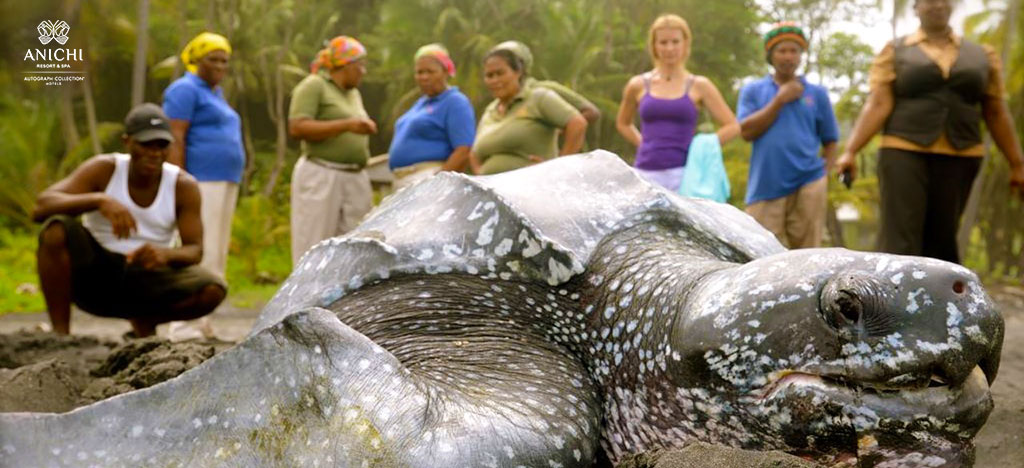
Leatherback Sea Turtle in Dominica
The beaches on the island’s east coast serve as nesting grounds for the leatherback sea turtle population. These are the largest modern turtles, whose body length can be up to 2.5 meters , and the span of the front flippers is about 5 meters. The calm and clear waters around the island are inhabited by rare hawksbill turtles, loggerheads, green turtles, as well as dolphins and a large population of sperm whales. Dominica is recognized by professional diving instructors as one of the top ten diving and snorkelling destinations in the world.
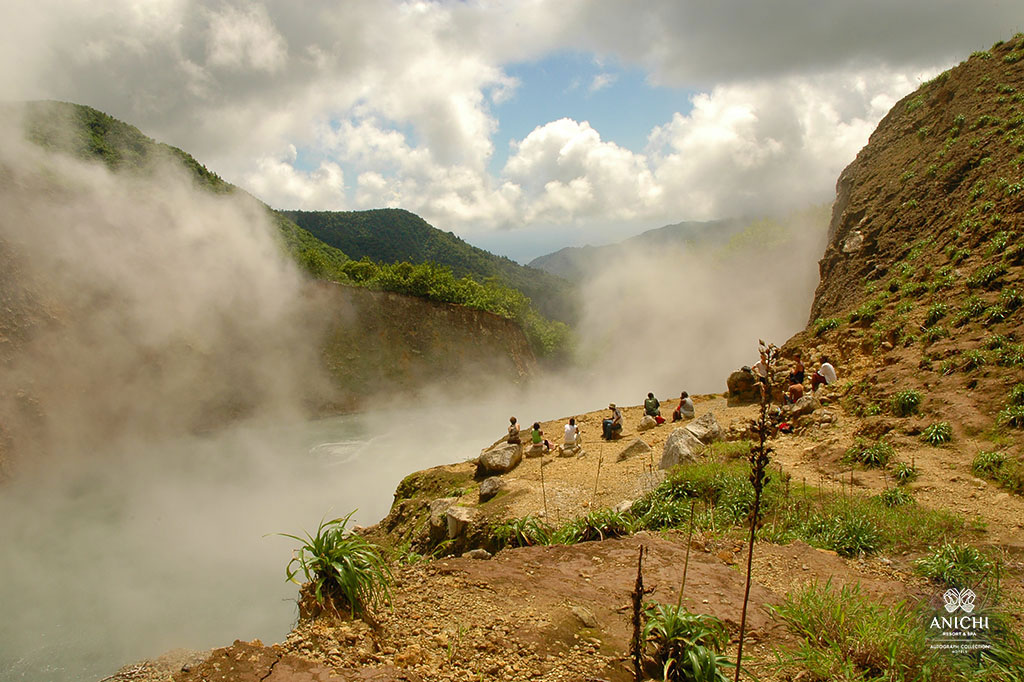
Boiling Lake, Dominica
The island has the second largest boiling lake in the world, hot sulphur springs, picturesque waterfalls, crystal rivers and fresh lakes. From north to south, through the impressive sights of Dominica, the longest hiking trail in the Caribbean, the Waitukubuli National Trail, is laid, which is 185 km and is divided into 14 segments, varying in physical activity: from the easiest walks to the hard many hours of ascents and descents along steep and picturesque slopes mountains covered with dense rainforest.
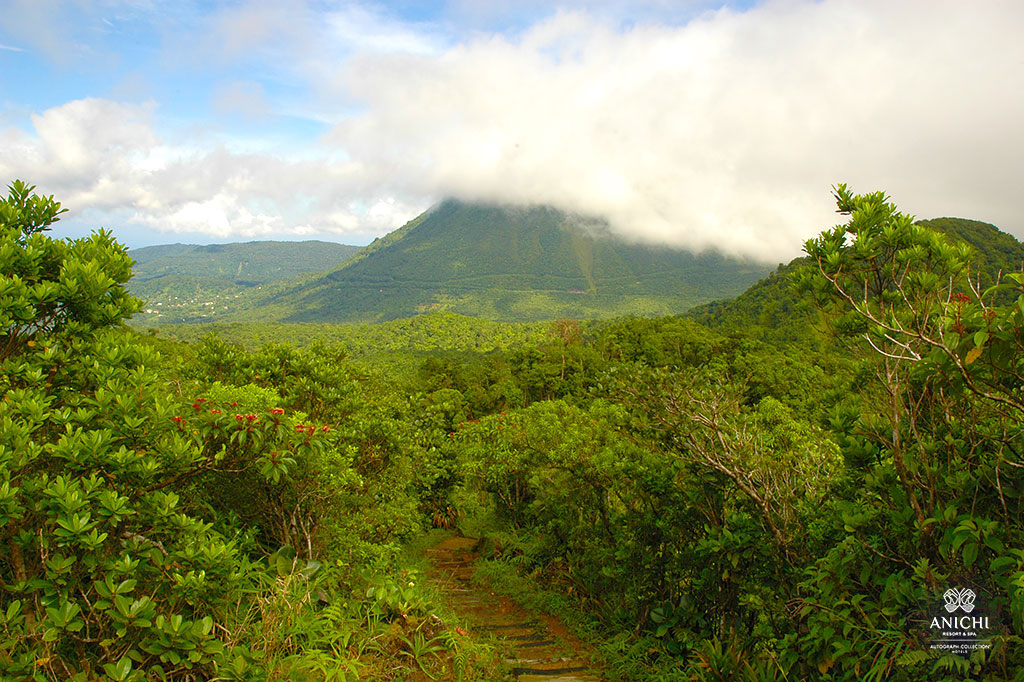
Hiking Trail in Dominica
It is no surprise that the island has attracted a lot of travellers and has been recognized by celebrities and reputable travel publications for the past two decades: Dominica has a lot to see and do, and most importantly, to be in a place where nature is preserved in its original form.
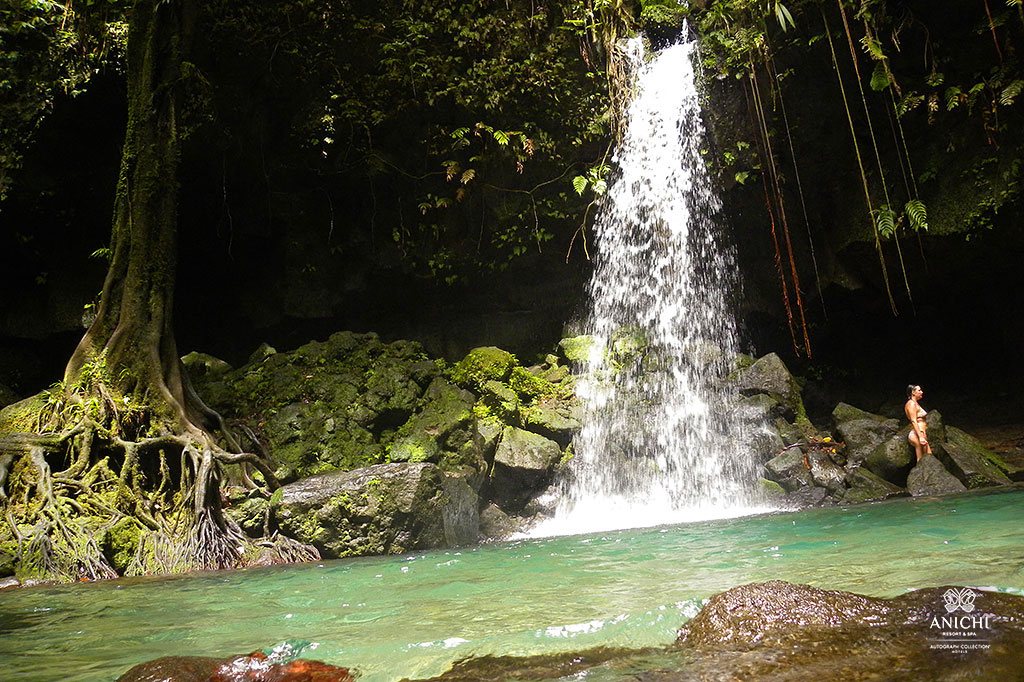
Emerald Pool in Dominica
Rich clean air and water, healthy food, opportunities for interesting physical activity, picturesque nature, the absence of harmful industries or dangerous biological laboratories, a calm and measured lifestyle in a politically stable country – all this is the key to longevity, which the people of Dominica are famous for.
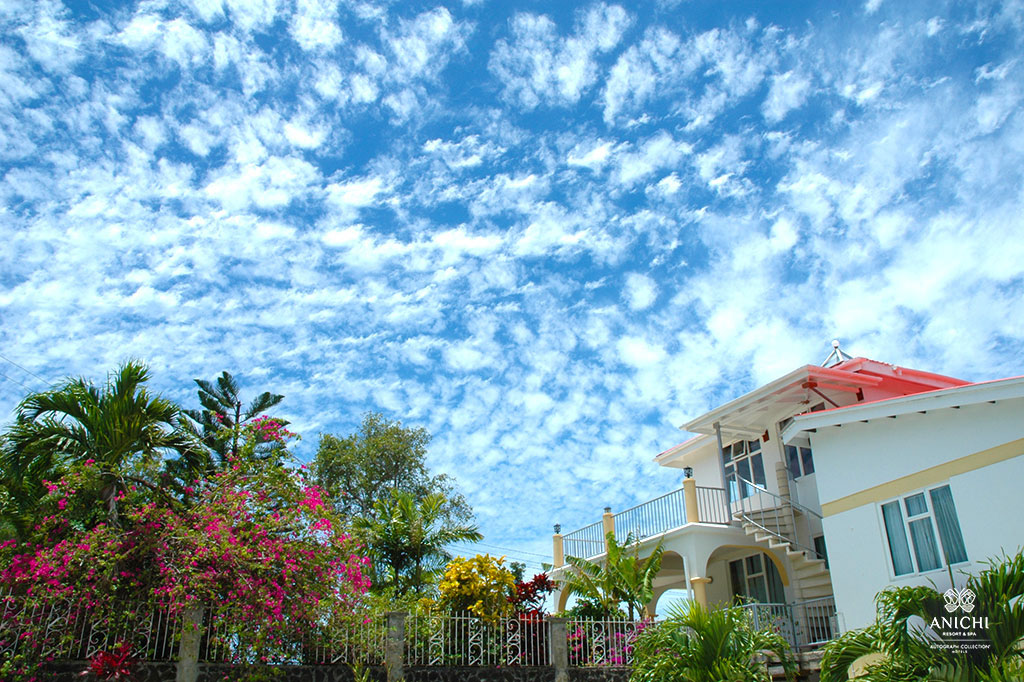
Dominica
The standard of living in Dominica is good. The inhabitants of the island have access to all the material benefits of civilization: basic services, electricity, water supply, transport, healthcare, education and communication services.
The presence of a huge supply of water resources in the form of rivers, lakes and underground sources is one of the main advantages of Dominica compared to other countries in the Caribbean region, where you have to process sea water to get fresh water. Not surprisingly, the island is being considered as an alternative source of water supply in the Caribbean.
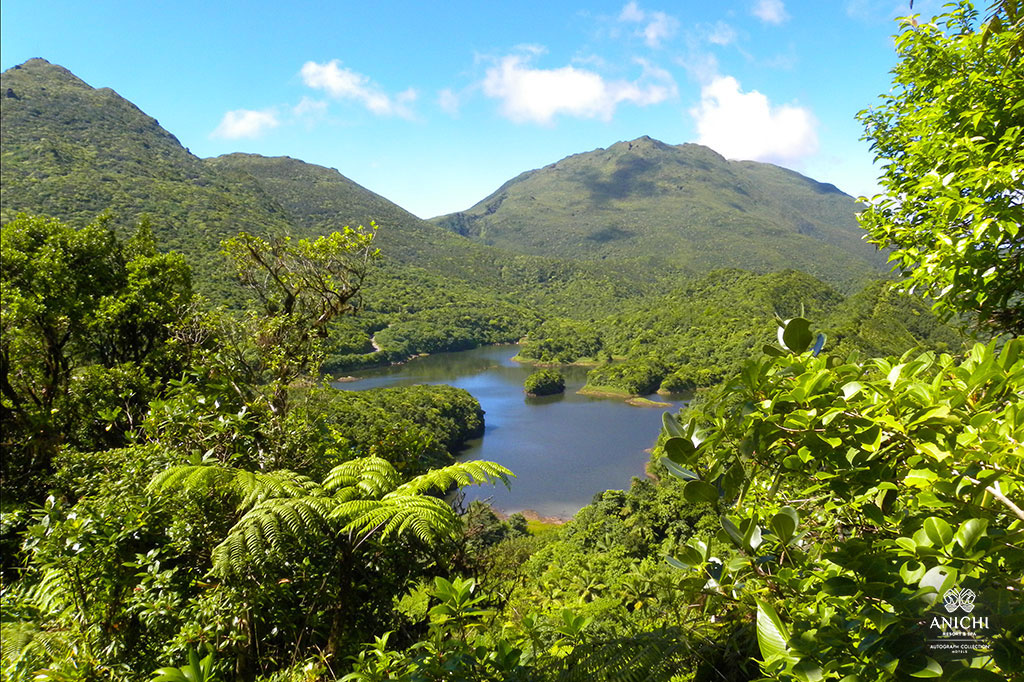
Freshwater Lake, Dominica
Dominica is one of two Eastern Caribbean states that use their hydropower potential to generate electricity, accounting for approximately 28% of Dominica’s total energy balance. Also, geothermal research has been carried out on the island, several wells have been drilled, and in the near future, there are plans to begin construction of a 10 MW geothermal plant, which will increase the use of renewable energy sources to generate electricity and help significantly reduce the cost of electricity for consumers.
The telecommunications sector is well developed. Dominica was the first in the world to implement a digital national telephone system throughout the country. Cellular communication is available throughout the state. Telecommunications providers provide cable TV services and reliable, fast and inexpensive Internet access, due to the use of modern equipment and technologies. Dominica has become an ideal location for call centres and remote data processing.
The cost of living in the country is low compared to the US, UK, as well as other Caribbean countries. The economy is stable and growing. Key sectors of the economy: agriculture, industry, tourism, and financial services.

Pineapple
Dominica’s natural resources are ideal for agriculture. The country grows and exports bananas, coconuts, citrus fruits, mangoes, guava, papaya, vegetables, coffee, cocoa, cinnamon, vanilla, aloe vera and exotic flowers. A small commercial fishery has been established.
There are successes in increasing the export of such industrial products as coconut soap, oils, juice concentrates, water, rum, candles, paints made from natural ingredients. The production of copra, furniture, cement blocks, shoes and other high-quality consumer goods is carried out.
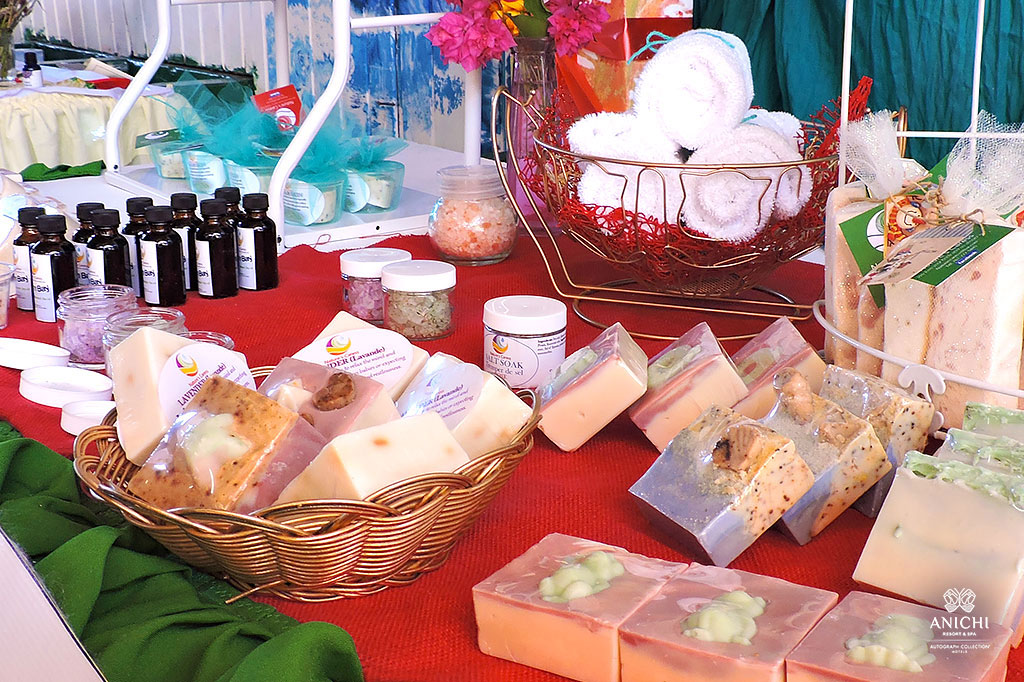
Soap
The tourism industry is developing successfully. The Government of Dominica is improving the infrastructure necessary for this in a timely manner: it is updating airports, marinas, information centres, building new world-class resorts and an international airport, and creating original tourist routes around the island. With the introduction of a direct international flight from Miami in 2022, the number of visitors from the United States increased by 2.6 times. Dominica has gained wide popularity among ecotourists around the world.
Dominica has an excellent healthcare system, and the Dominica Government regularly invests in the development and modernization of medical infrastructure. There are a number of major hospitals, clinics, health centres and medical laboratories providing high quality medical care.
Children under the age of 17, pregnant women, the poor, and people suffering from infectious diseases are exempt from health care fees, which are not very high for Dominica citizens.
Also on the island, specialized doctors are available who are engaged in paid private practice, where prices are higher, but if you wish, you can get inexpensive medical insurance that will cover 80-90% of the cost of treatment.
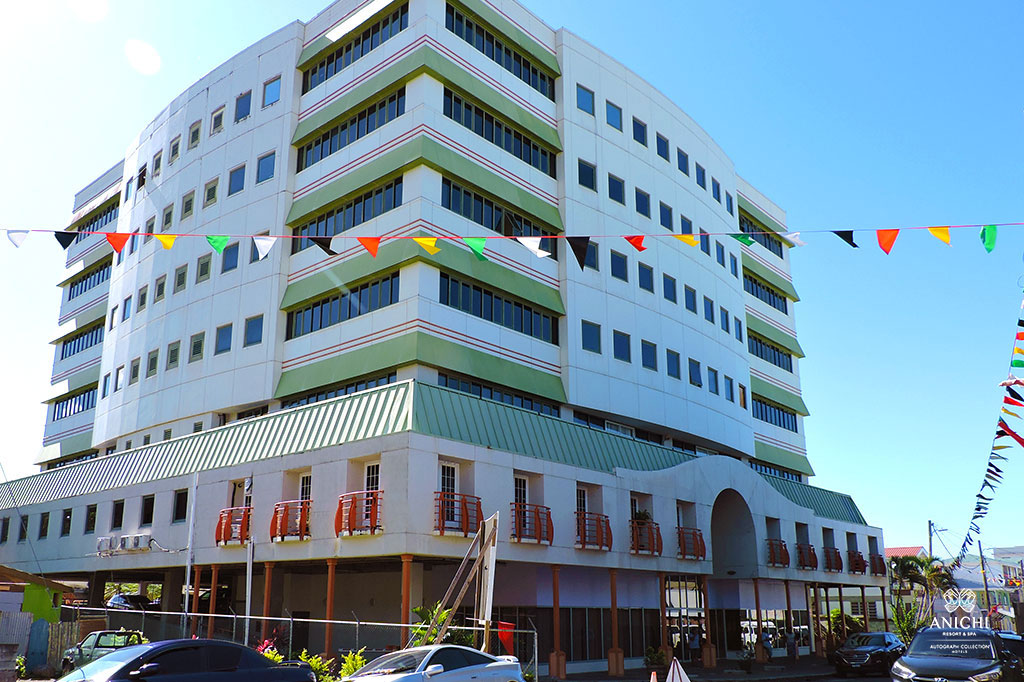
Financial Centre, Dominica
Dominica has a favourable climate for living, working and doing business. The litmus test for this was the coronavirus pandemic. When entire countries closed and went into self-isolation and severe restrictions, a comfortable lifestyle reigned in Dominica. The Government took care of its citizens, providing information and providing everything necessary for treatment and prevention, but also mindful of the rights and freedom of choice of each person.
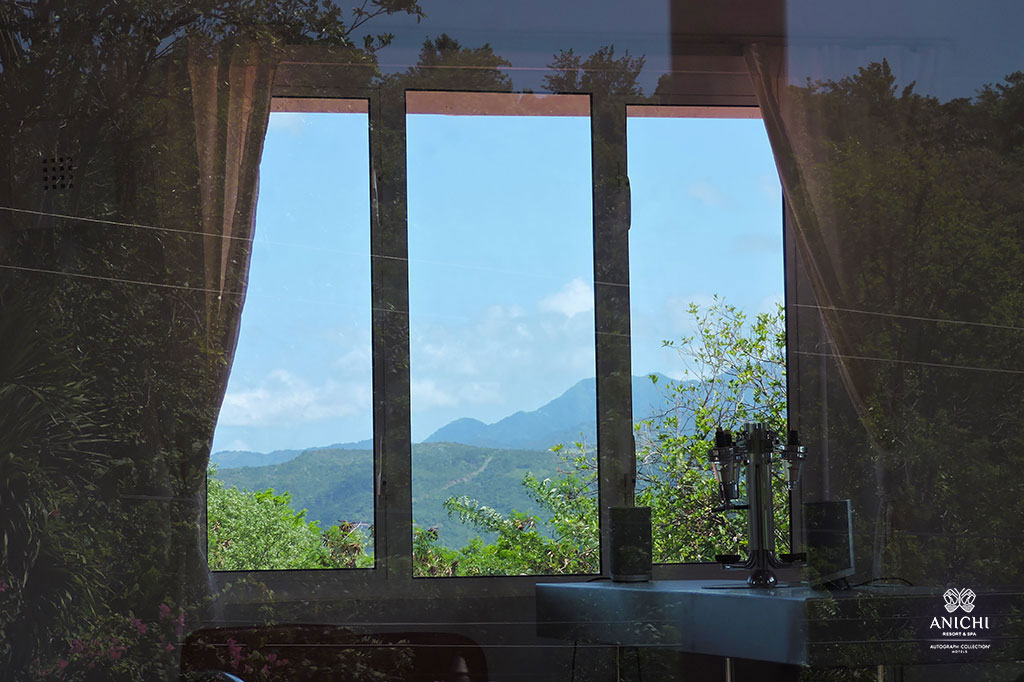
Work in Nature
There were many who wanted to be on the last island of calm and peace. Therefore, in 2021, a special Extended Visa Programme “Work in Nature” was created, providing the opportunity for individuals and their families to work remotely while being physically in Dominica for up to 18 months. With its low cost of living, fast and reliable internet, easy visa application, flavourful and tasty food, and leisure activities, it has gained wide popularity among digital remote workers and has been named the best remote work programme in the Caribbean, according to Kayak, ranked third in the rating of US travel websites.
Dominica has a legal and regulatory environment that creates all the necessary conditions for the smooth opening of companies, easy business, and its successful development. Dominica citizens gain access to the Caribbean market, being able to trade duty-free with members of the Caribbean Community (CARICOM) and live and work freely in member states of the Organization of Eastern Caribbean States (OECS).
To become a tax resident of Dominica, individuals must reside in the country for at least 183 days. Dominica does not impose taxes on capital gains, real estate, inheritance, gift and global tax. There is no personal income tax if the income is not earned from sources on the island. The tax rate on income from sources in Dominica is calculated on a progressive scale: from 0 to 35%.
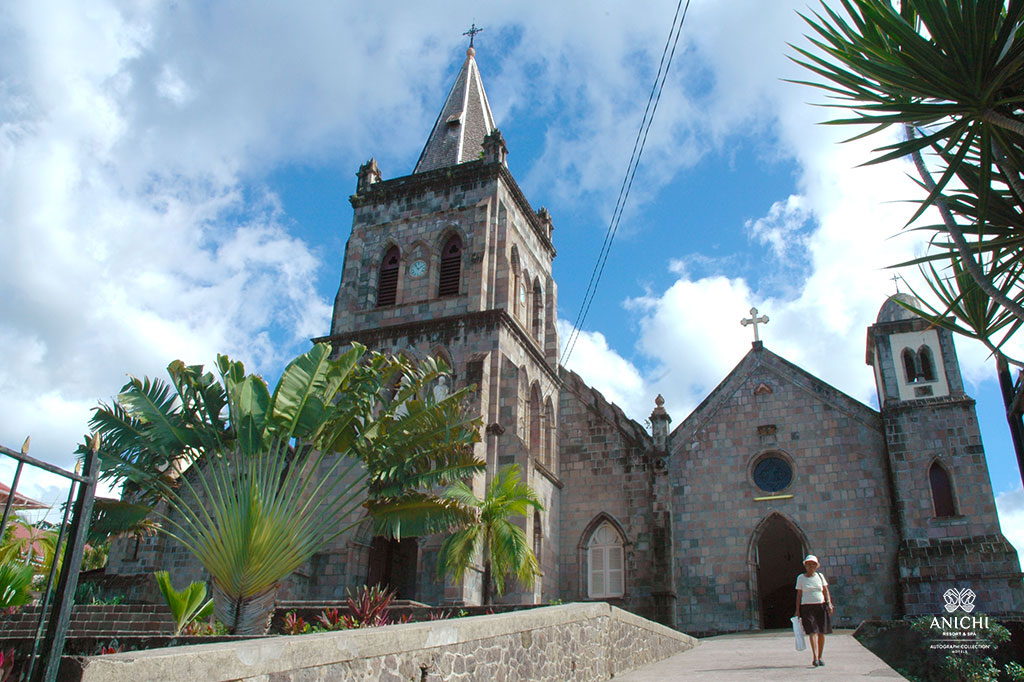
The Cathedral of Our Lady of Fair Haven of Roseau
There are no conflicts and persecution on the basis of religion on the island, and the constitution of the state establishes freedom of religion and thought, which is respected by the government and society as a whole. About 61% profess Catholicism, 18% are followers of evangelical churches, the rest are representatives of other religious groups and confessions: Rastafarians, Muslims, Buddhists, Hindus, etc. 6% of the population do not declare religious affiliation.
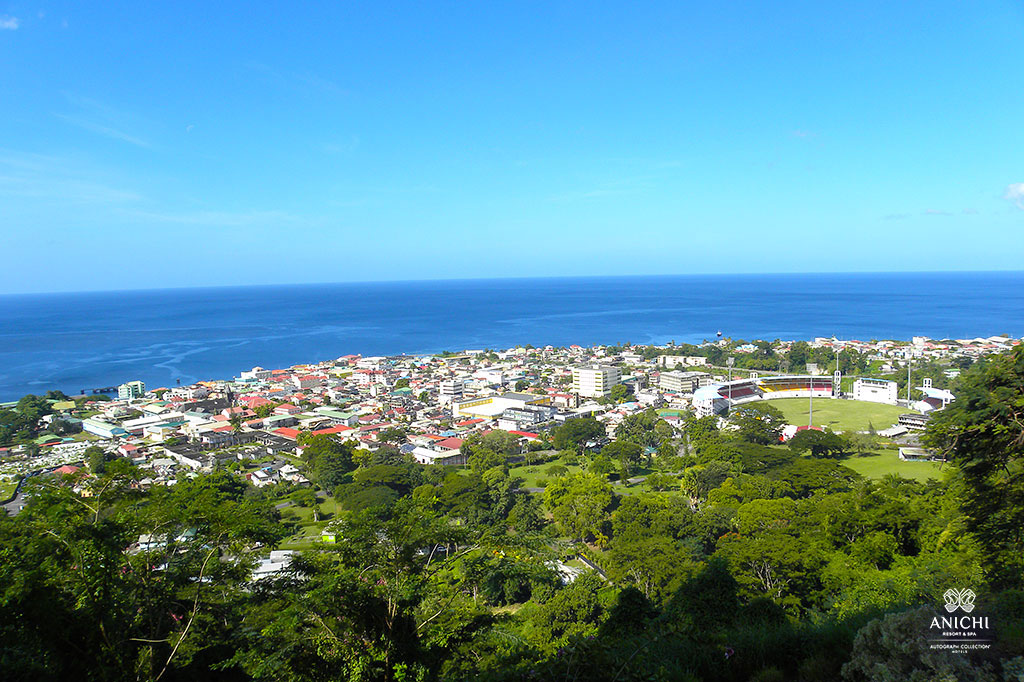
Roseau, Dominica
Dominica gained independence from UK in 1978, immediately becoming a republic. The president is the head of state, and executive power is vested in the cabinet, headed by the prime minister. The unicameral parliament consists of the House of Assembly:
There is universal adult suffrage, and the term of office is five years.
The political situation on the island is calm. Citizens of Dominica have the opportunity to express their opinion: opposition channels broadcast freely on the island. The Government of Dominica listens to the criticism and opinion of the people. There is equality before the law.
The state has a good international reputation. Dominica is a member of the Organization of American States, the Caribbean Community, the United Nations, the Commonwealth of Nations and the Organization of Eastern Caribbean States. Dominicans can travel visa-free to over 140 countries and territories.
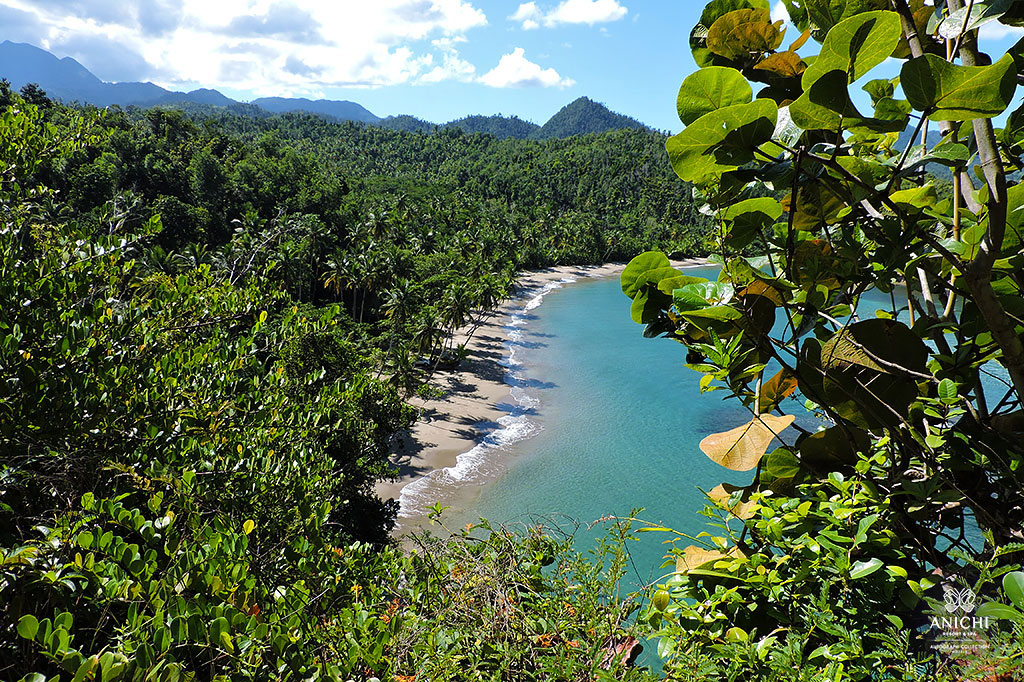
Batibou Beach, Dominica
The programme for obtaining citizenship by investment, launched by the Government of Dominica in 1993, has been successfully operating for 30 years and allows to obtain citizenship in 3-4 months. You have the opportunity to obtain a second citizenship through real estate investment.
A Dominica government approved project, Anichi Resort & Spa, is a member of Marriott International’s premium brand the Autograph Collection. The hotel is located along the sandy 12-acre Picard Beach in Portsmouth, which offers unforgettable views of the Caribbean Sea and the picturesque mountains of Dominica. To find out all the conditions of our offer and the benefits for you, please contact us.